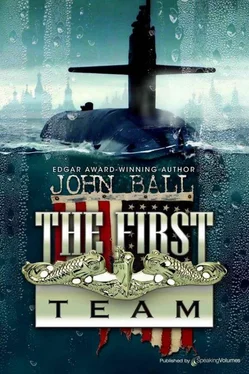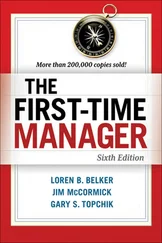Джон Болл - The First Team
Здесь есть возможность читать онлайн «Джон Болл - The First Team» весь текст электронной книги совершенно бесплатно (целиком полную версию без сокращений). В некоторых случаях можно слушать аудио, скачать через торрент в формате fb2 и присутствует краткое содержание. Год выпуска: 2013, Жанр: Триллер, на английском языке. Описание произведения, (предисловие) а так же отзывы посетителей доступны на портале библиотеки ЛибКат.
- Название:The First Team
- Автор:
- Жанр:
- Год:2013
- ISBN:нет данных
- Рейтинг книги:5 / 5. Голосов: 1
-
Избранное:Добавить в избранное
- Отзывы:
-
Ваша оценка:
- 100
- 1
- 2
- 3
- 4
- 5
The First Team: краткое содержание, описание и аннотация
Предлагаем к чтению аннотацию, описание, краткое содержание или предисловие (зависит от того, что написал сам автор книги «The First Team»). Если вы не нашли необходимую информацию о книге — напишите в комментариях, мы постараемся отыскать её.
Student protesters are being slaughtered in the Midwest.
The Jewish pogroms have begun.
You are now living in Soviet — occupied America!
One nuclear submarine and a handful of determined patriots against the combined might of Russia and Soviet-occupied America… The Most Explosive and Gripping “What If” Novel of Our Time!
First published January 1971
The First Team — читать онлайн бесплатно полную книгу (весь текст) целиком
Ниже представлен текст книги, разбитый по страницам. Система сохранения места последней прочитанной страницы, позволяет с удобством читать онлайн бесплатно книгу «The First Team», без необходимости каждый раз заново искать на чём Вы остановились. Поставьте закладку, и сможете в любой момент перейти на страницу, на которой закончили чтение.
Интервал:
Закладка:
“Sit down, gentlemen,” he invited. “It’s time to put Tommy Jefferson to work.”
Some thirty-nine hours later the body of retired Admiral Barney Haymarket, one of the most colorful and efficient Chiefs of Naval
Operations that the service had ever known, was found in the wreckage of his car where it had gone off the road during a heavy night rainstorm in the Rocky Mountains.
As he went through the motions of installing himself in his new office, Hewlitt kept forgetting where he wanted to put things because of the many thoughts which were seething in his brain. He was beginning to awake to an uncomfortable realization, and he did not like it at all. He was thirty-two years old, by any reasonable calculation his life was at least one-third over, and he had never as yet made a conscious decision as to what he wanted to do or what he hoped ultimately to accomplish.
His collegiate career had been appropriately distinguished, particularly since he had been born with a quick ear and a gift for languages. He had studied for a year abroad; after that the suggestion had been gently made to him that now that his education in the formal sense had been concluded, it was time for him to go to work. It pained him now to realize that he had not made a decision then either — he had simply taken the path of least resistance. A job had been available in the State Department, it had been offered to him, and he had accepted it. Every move he had made after that had been decided for him. While up until a few weeks ago most of his various friends had agreed that he had “made good,” he was now beginning to be conscious of the fact that all he had really done was go where he had been pushed.
He adjusted the reading light on the desk and set his typewriter where it would be conveniently at his elbow. Now, he knew, from that minute forward he would have to lead a very different life. He would be right under Zalinsky’s nose, his every word and action subject to scrutiny and analysis. He could play it two ways: he could do as he was told and keep his nose clean, or he could go for higher stakes with his life on the line. That was a helluva lot different, he thought, from being on the collegiate tennis team, where a victory or a defeat meant very little when you came right down to it.
As he put a supply of freshly sharpened pencils into the center desk drawer, he wondered just how much chance he would have of accomplishing anything if he did elect to try to fight back. The entire American military establishment had been overcome by swift, brilliant, almost bloodless action. Billions of dollars in defense preparation had proven ineffective. Now he proposed to try to reverse that outcome with a team which so far consisted of two stenographically skilled, reasonably willing girls. Bob Landers had tried it and Bob Landers had lost his life within a matter of days.
But, dammit, that kind of defeatist attitude was what had beaten the country in the first place! It had not been overcome on the field of battle or by warfare at sea, it had been outmaneuvered from without and within. Leftist subversion and the attitudes of people like Fitzhugh, the peace-at-any-price boys, had caused the military to be in an understaffed, demoralized posture when the enemy had hit. Hewlitt was not a militarist, and he had never served in any branch of the armed services. But now his spirit cried for action. Bitterly he knew that it was too late; he should have felt that way before instead of filling out his deferment papers as he had done. Of course if this disaster had not overtaken the country, a military career would not have appealed to him at all.
When his desk was finally in order, he sat down to think. He didn’t want to leave things as they were — he wanted for the first time in his life to make a decision — probably the most important one he would ever face. He had to make it to establish his own self-respect. He was aware that his position was unique in the country; he was sitting at the nerve center of Zalinsky’s administration, that meant that he would be in an invaluable position to help any bona fide underground movement. It also meant that he would be exposed to far greater jeopardy than would be the case almost anywhere else.
He was startled when he looked up and found Zalinsky himself at his elbow. Without thinking, he rose to his feet. “You have of everything you need?” he was asked.
“Everything, Mr. Zalinsky. As far as I know now.”
“It is good. You will soon become very busy. When I wish to call you, what is the name you employ?”
Hewlitt thought rapidly, but he could not find the words he needed. “My friends call me ‘Hew,’ ” he said. He was reluctant to put Zalinsky in that category.
“But that is not your initial name.”
“No, my first name is Raleigh; I never use it.”
Zalinsky considered the information. “I have not yet the fullest awareness of this country, but that name I have never heard before.”
“Our family is distantly related to the Raleighs of Virginia. When I was born, my mother evidently decided to make me the connecting link. So she gave me that name.”
“It was a bad idea,” Zalinsky said.
Hewlitt nodded. “I agree; I don’t like it either.”
“So there is one thing about which we are not enemies.” With that Zalinsky disappeared into the Oval Office.
Perhaps the man had been trying to be friendly, but Hewlitt doubted it; more likely it had been an invitation to him to let his guard down.
Then, quite simply, he made his decision; he would fight back. He was in it all the way — to do the best that he could. A surge of fierce pride took hold of him; he was not doing now merely what was expected of him, he was not reacting automatically, he was undertaking something with his eyes open, on his own initiative, and God willing, they would know that he had been in the battle before it was through.
A man from the enemy was approaching his desk; this time Hewlitt carefully catalogued him in his mind. Age about fifty-five, five feet ten, weight one eighty, face moderately intelligent, uniform better fitted, an officer. “Yes?” he asked.
“I am told that you speak our language.” The voice, educated but cool.
“Yes, I do.” He switched effortlessly into the other tongue.
“I have some instructions to give you. I am Major Barlov, commander of the security detail for this headquarters.”
Hewlitt started to say, “Pleased to meet you,” automatically, then he caught himself. He spoke his own name and then waited.
“I am informed that you are to be in charge of appointments and visitors for Mr. Zalinsky. Therefore you will be required to vouch for each person who applies to be admitted. That is to say, you will be called upon to confirm that he has an appointment and that Mr. Zalinsky has consented to see him. Each visitor will be searched. This is to be explained beforehand to save additional trouble for my men.”
“How about women?” Hewlitt asked.
“The same thing, but I do not believe that Mr. Zalinsky will have much time for any women. The point is, no one is to enter that office until we have given permission. Is that very clear to you?”
“Perfectly.”
“One more thing: I am specifically warning you against taking advantage of your position. You are never to walk in on Mr. Zalinsky without his prior knowledge. And you are never to carry anything, such as a letter opener, which could be used as a weapon. If any attempt is made upon Mr. Zalinsky, you will protect him with your life; if you fail to do this, you will be regarded as part of the attempt. That is all for the present.” The major nodded, turned on his heel and walked away.
It seemed to Hewlitt that precious few Americans would be asking for appointments to see Zalinsky — if they knew what was good for them. It was like calling on the Turkish sultans in the old days; give the slightest displeasure and your head was served up in the middle of a big platter, then and there. Zalinsky had already ordered one execution, which had been immediately carried put; the man was as trustworthy as a cobra and Hewlitt did not intend to forget that fact for a moment.
Читать дальшеИнтервал:
Закладка:
Похожие книги на «The First Team»
Представляем Вашему вниманию похожие книги на «The First Team» списком для выбора. Мы отобрали схожую по названию и смыслу литературу в надежде предоставить читателям больше вариантов отыскать новые, интересные, ещё непрочитанные произведения.
Обсуждение, отзывы о книге «The First Team» и просто собственные мнения читателей. Оставьте ваши комментарии, напишите, что Вы думаете о произведении, его смысле или главных героях. Укажите что конкретно понравилось, а что нет, и почему Вы так считаете.












